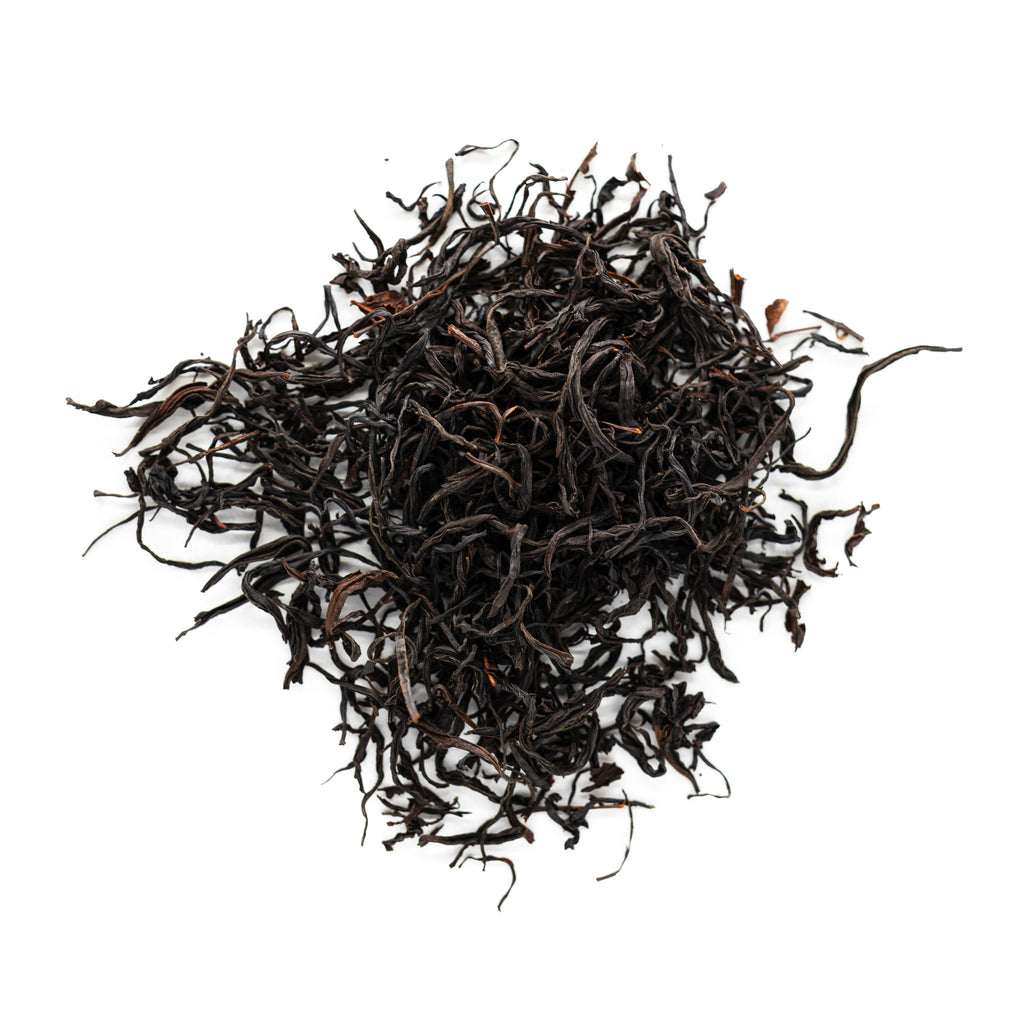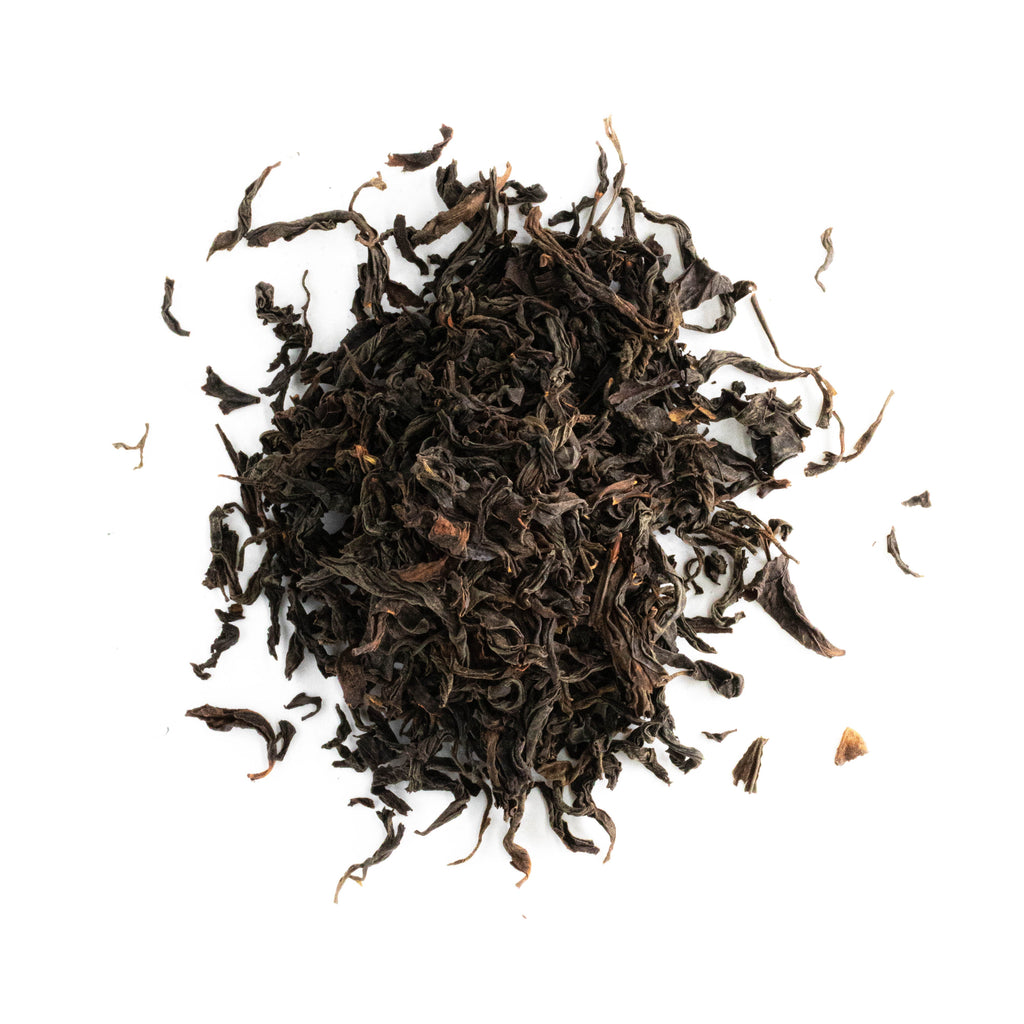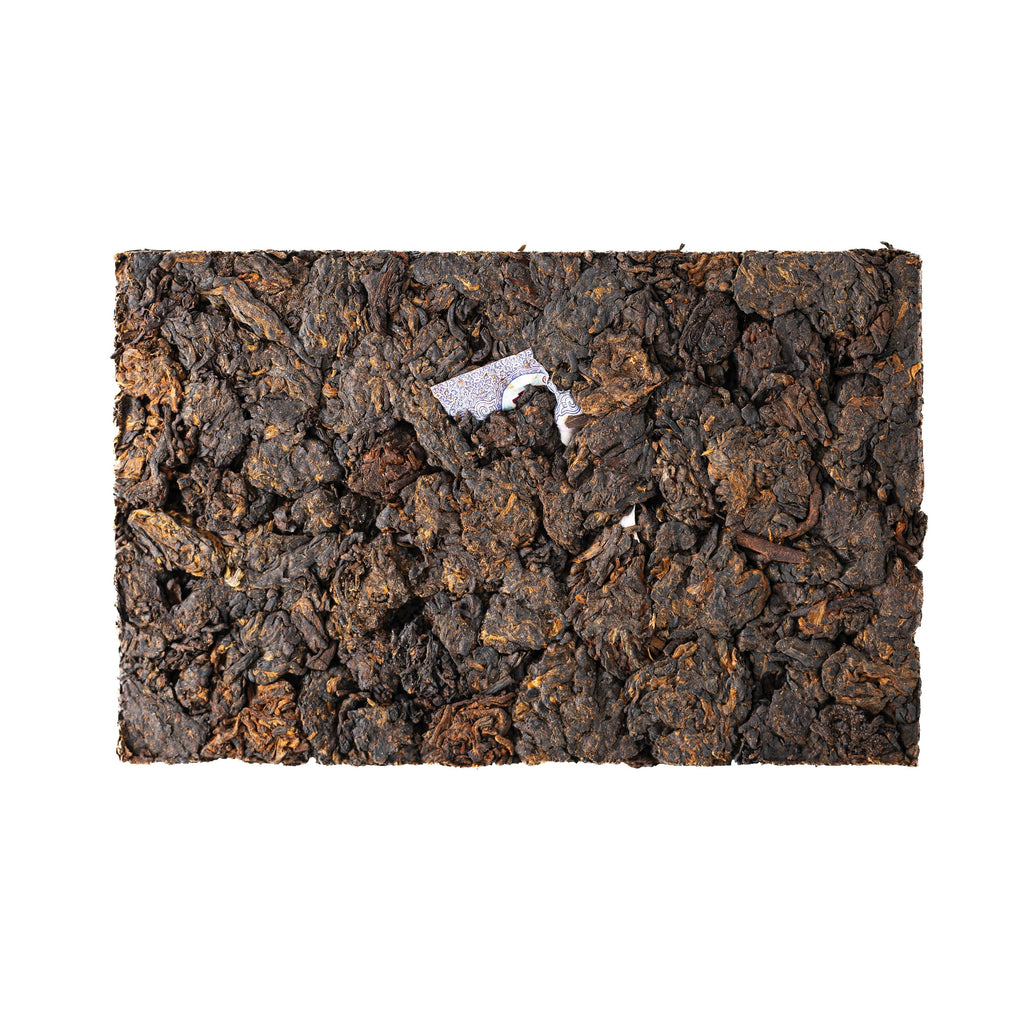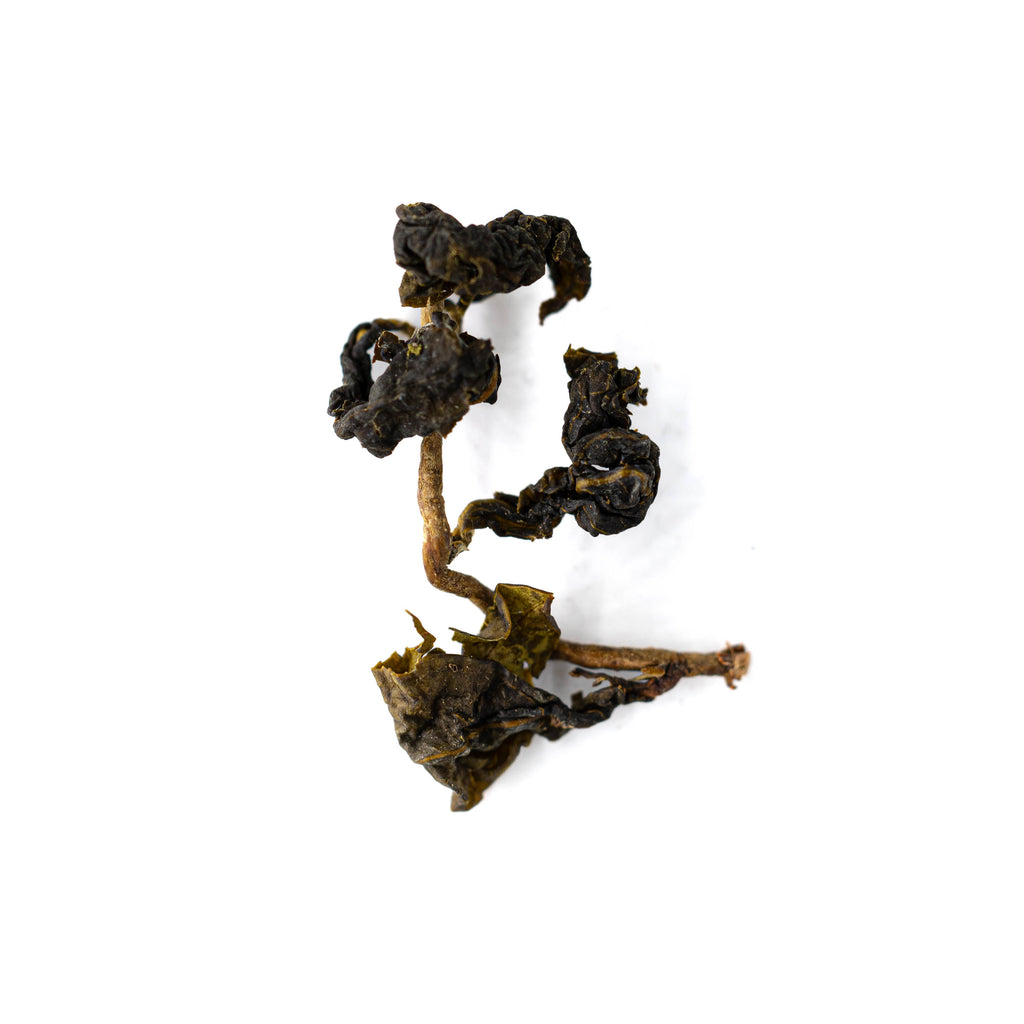Zi Ya (紫芽), or “purple bud,” refers to tea leaves with a natural anthocyanin-rich mutation that grow in both Yunnan and Taiwan.
Dictionary
-
-
Fei Zi Xiao
Fei Zi Xiao (妃子笑)
Also known as The Concubine’s Smile, Lychee Aroma Black Tea, and 妃子笑红茶
Fei Zi Xiao is an aromatic Hong Cha (红茶) from Wuyishan, known for its natural lychee fragrance.
Name
- 妃 (pronounced Fei in Mandarin): refers to an imperial concubine.
- 子 (pronounced Zi in Mandarin): a nominal suffix.
- 笑 (pronounced Xiao in Mandarin): means smile or laugh.
妃子 altogether means imperial concubine.
It’s a name that carries dual significance, referring both to a famous lychee cultivar grown in southern China and to a well-known poem by the Tang dynasty poet Du Mu.
The poem describes a horse kicking up red dust as it carries fresh lychees to Yang Guifei, the favorite concubine of Emperor Xuanzong. As she sees them, she smiles. The lychees would have had to have quickly travelled great distances in order to remain fresh. The poem is read as a reflection of the era’s decadance, as well as the great lengths that Emperor Xuanzong would go to please Yang Guifei.
Fei Zi Xiao (the tea) is known for its lychee-like aroma, making the name an homage to the fruit it closely resembles in scent. It’s a classic move in Chinese tea naming: draw from history, literature, and myth to imbue the tea with a layer of prestige (You can see other examples of this with Da Hong Pao and Bi Luo Chun).
Production
Fei Zi Xiao tea should come from Wuyishan, particularly Tongmuguan, where it is picked once per year.
Think of it as the authentic counterpart to cheap, artificially flavored lychee hong cha. Instead of added flavoring, this tea gains its fruitiness naturally through cultivar, terroir, and craft.
Explore Further
-
Lao Cha Tou
Lao Cha Tou (老茶头)
Also known as Old Tea Heads, Cha Tou (茶头), Lump Tea (疙瘩茶), and Natural Tuo (自然沱),
Lao Cha Tou is a type of compressed nugget that forms during the fermentation of Shu Puer (熟普洱).
Name
- 老 (pronounced Lao in Mandarin): means old.
- 茶 (pronounced Cha in Mandarin): means tea.
- 头 (pronounced Tou in Mandarin): means head or lump.
The name 老茶头 (Lao Cha Tou) refers to clumps of tea that naturally form during the World Dui process. When freshly produced, they have a bit of an offputting smell (called Dui Wei (堆味)), so they usually need a little aging before they can be drunk. This aging is why they are called "old".
History
Lao Cha Tou is one of the more unusual subcategories of Shu Puer. For decades, it was viewed as a byproduct of the Wo Dui (握堆) process, oftentimes thrown out before it ever had a chance to reach tea lover's cups.
Lao Cha Tou forms during the hot and humid process of transforming Puer Cha (普洱茶) leaves into Shu. Dense clumps of leaves, glued together by naturally forming pectin, bond together. On average, less than 2% of leaves in a fermenting pile of leaves end up as Lao Cha Tou, though producers can encourage its formation through the inclusion of greater amounts of buds.
While Lao Cha Tou has technically existed since factories began the Wo Dui process in the 70's, it only debuted on the market in 2006 when Dayi began selling pressed bricks of it. It has a niche following today, with many people, including myself, loving its sweetness and Nai Pao (耐泡). Others dismiss it as an inferior byproduct that lacks the allure of regullar Shu.
Explore Further
-
Qing Xin Ruan Zhi
Qing Xin Ruan Zhi is the tea varietal most commonly used for Taiwan Wulong teas, loved for its delicate profile.




